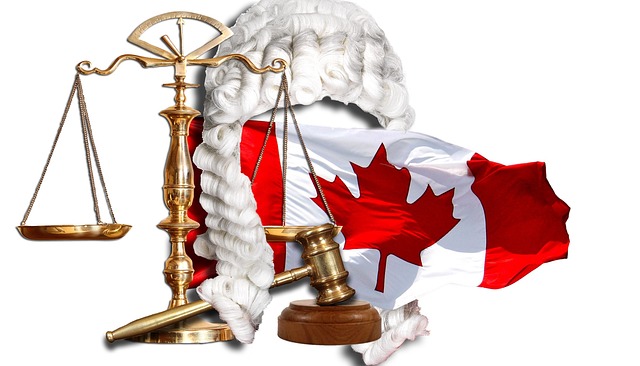Seeking Justice: Guide to Compensating Surgical Negligence with a Medical Malpractice Lawyer

Surgical negligence, a deviation from standard care causing patient harm, warrants legal action. Pro…….
In the intricate web of healthcare, where lives hang in the balance, medical malpractice lawyers emerge as a critical pillar, safeguarding patients’ rights and ensuring accountability. This comprehensive article delves into the multifaceted role these legal professionals play, exploring their impact globally, the economic landscape they navigate, technological innovations they embrace, and the challenges they tackle. By examining real-world case studies and gazing into future trends, we gain insights into how medical malpractice lawyers contribute to a more responsible and patient-centric healthcare system.
A medical malpractice lawyer is a legal expert specializing in advocating for patients who have suffered harm due to negligence or mistreatment within the healthcare spectrum. This includes hospitals, clinics, doctors, nurses, and other medical professionals. Their core responsibilities encompass several key aspects:
Legal Expertise: These lawyers possess an in-depth understanding of medical practices, legal principles, and relevant laws. They stay abreast of case precedents and legislative changes to build robust arguments for their clients.
Patient Advocacy: At the heart of their role is advocating for patients who may lack the legal acumen or resources to protect their rights. They ensure that healthcare institutions are held accountable for their actions.
Negligence Claims: Medical malpractice lawyers investigate and prosecute claims of medical negligence, such as misdiagnosis, incorrect treatment, medication errors, and surgical mishaps. They navigate complex legal procedures to achieve just outcomes.
Historically, the need for medical malpractice law evolved as a response to increasing patient awareness and demands for accountability. As healthcare became more sophisticated, so did the potential for harm. The emergence of these lawyers has been pivotal in fostering a culture of safety and responsibility within the medical community.
The influence of medical malpractice law extends far beyond national borders, with significant global trends shaping its landscape:
Increasing Patient Awareness: In many countries, patients are becoming more proactive in understanding their rights and seeking legal recourse when harmed. This shift is driving the demand for specialized medical malpractice lawyers.
Regional Variations: Different regions exhibit unique patterns. For instance, in the United States, medical malpractice litigation is prevalent, while Europe tends to favor alternative dispute resolution methods like mediation and arbitration.
International Collaboration: Global health organizations and legal forums collaborate to establish uniform standards and guidelines for medical practice and liability. This international dialogue ensures consistency in patient protection.
The economic aspect of medical malpractice law is intricate, with various factors at play:
| Factor | Description |
|---|---|
| Market Size | The global medical malpractice insurance market is substantial, reflecting the industry’s awareness of potential risks. According to a 2021 report, the market value was estimated at USD 34.7 billion. |
| Investment and Premiums | Healthcare providers invest in malpractice insurance to protect themselves from potential lawsuits. Premium rates vary based on specialty, location, and risk profile. |
| Economic Impact | Medical malpractice claims can significantly impact healthcare institutions’ financial health. However, proactive safety measures and legal oversight contribute to reducing claim frequencies. |
Technology has revolutionized the medical malpractice lawyer’s approach, enhancing efficiency and accuracy:
Electronic Health Records (EHRs): EHRs provide easy access to patient data, streamlining investigations and improving case preparation.
Legal Research Databases: Online legal databases offer rapid access to relevant case law and legislative updates, enabling lawyers to build strong arguments.
Forensic Software: Advanced software tools assist in analyzing medical records, imaging, and other evidence, providing valuable insights for case analysis.
The legal framework governing medical malpractice varies across jurisdictions but generally includes:
Liability Laws: These laws establish the conditions under which healthcare providers can be held liable for harm caused to patients. They define elements like duty of care, breach of that duty, causation, and damages.
Statutes of Limitations: Time limits are set within which a patient must file a medical malpractice lawsuit. This ensures timely resolution and prevents indefinite liability claims.
Regulatory Bodies: In many countries, healthcare regulatory agencies oversee medical practices, license professionals, and investigate complaints, indirectly influencing medical malpractice cases.
Medical malpractice lawyers face several challenges, including:
Complex Case Proofs: Medical cases often involve intricate details, making it challenging to demonstrate negligence. Lawyers must possess exceptional analytical skills to navigate these complexities.
Costly Litigation: Medical malpractice lawsuits can be lengthy and expensive, with high attorney fees deterring some patients from seeking legal redress.
Public Perception: Sometimes, patients may face negative stereotypes or blame when pursuing legal action, creating a barrier to accessing justice.
Strategies for Improvement:
Case 1: The Misdiagnosis Trial
In a landmark case in the UK, a patient suffered severe delays in receiving an accurate cancer diagnosis. The medical malpractice lawyer represented the patient, successfully arguing that the hospital failed to adhere to established guidelines and standards of care. This case set a precedent for future misdiagnosis cases, emphasizing the importance of timely and accurate diagnoses.
Case 2: Hospital Negligence Settlement
A group of attorneys secured a substantial settlement in the US for several patients who endured unnecessary surgical procedures due to hospital staff errors. The case highlighted the liability of hospitals for their employees’ actions, leading to improved safety protocols across the healthcare network.
The medical malpractice law landscape is poised for significant growth and evolution:
Telemedicine and Remote Care: As telemedicine gains prominence, legal professionals must navigate the unique challenges of remote patient care, including consent, privacy, and liability issues.
AI and Medical Decision Making: With AI integration in healthcare, lawyers will address complex questions regarding algorithmic errors and their impact on patient safety.
Global Standardization: Efforts to harmonize medical malpractice laws internationally will continue, ensuring consistent protection for patients worldwide.
Medical malpractice lawyers play an indispensable role in safeguarding patient rights, fostering medical accountability, and contributing to a more transparent healthcare system. Through their efforts, they drive continuous improvement in medical practices, ultimately enhancing patient safety and outcomes. As the legal landscape evolves, these professionals will remain at the forefront, navigating new challenges and technologies to protect patients’ interests.
Q: How do I choose the right medical malpractice lawyer?
A: Research is key. Look for lawyers with extensive experience in medical malpractice cases, a strong track record of successful outcomes, and expertise in your specific jurisdiction’s laws. Referrals from trusted sources can also guide your decision.
Q: What happens after I file a medical malpractice lawsuit?
A: After filing, the lawyer will gather evidence, deposing relevant parties (if necessary), and preparing for potential trial. The case progresses through legal proceedings, which may include mediation or arbitration before reaching a verdict or settlement.
Q: Can medical malpractice lawsuits delay essential treatments?
A: While litigation can take time, prompt filing is crucial to preserving evidence and ensuring timely resolution. Many cases are settled outside of court, allowing patients to pursue necessary treatments while pursuing compensation.
Q: How do technological advancements benefit medical malpractice claims?
A: Technology streamlines investigations, improves case management, and enhances evidence analysis. For example, EHRs provide easy access to patient history, aiding in demonstrating medical negligence.

Surgical negligence, a deviation from standard care causing patient harm, warrants legal action. Pro…….

Medical malpractice claims require specialized legal expertise due to complex issues surrounding neg…….

Uncovering top-tier medical malpractice lawyers is crucial for securing compensation after medical e…….

Medical malpractice cases require specialized legal expertise due to their complexity. A qualified m…….

Medical malpractice claims require meticulous documentation of medical histories, treatment plans, a…….

Medical malpractice lawyers are crucial in complex legal matters involving patient harm caused by he…….

Patient injury claims, especially those involving medical malpractice, require specialized legal ass…….

Medical malpractice occurs when healthcare providers fail to meet acceptable standards of care, caus…….

In recent years, a significant surge in medical malpractice claims has been driven by heightened pub…….